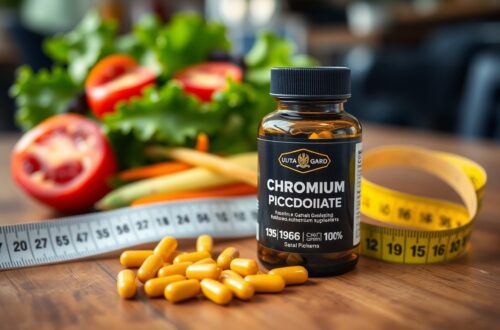Optimization of supplement absorption can significantly enhance the benefits you reap from your nutritional regimen. Understanding the factors that influence how effectively your body utilizes these nutrients is necessary. In this comprehensive guide, you will explore key strategies, timing, and food interactions that can boost your supplement efficacy. By implementing these insights, you can ensure that you are maximizing the potential of the supplements you choose, leading to improved health and vitality.
Key Takeaways:
- Timing: The absorption of supplements can significantly vary based on the time of day they are taken.
- Food Interactions: Some supplements are better absorbed with food, particularly those that are fat-soluble.
- Formulations: Different supplement forms (liquid, capsule, powder) can affect how well nutrients are absorbed in the body.
- Individual Needs: Personal health conditions, age, and lifestyle can influence nutrient absorption rates.
- Hydration: Adequate water intake is necessary for optimal breakdown and absorption of supplements.
- Synergistic Nutrients: Certain vitamins and minerals work better together, enhancing overall absorption.
- Quality of Supplements: High-quality, reputable supplements are more likely to be well-absorbed compared to lower-quality alternatives.
Types of Supplements
While there are numerous types of supplements available, understanding which ones suit your needs is vital for optimizing absorption. Here’s a brief overview:
- Vitamins and Minerals
- Herbal Supplements
- Protein Powders
- Amino Acids
- Fatty Acids
This categorization can help streamline your supplement choices and enhance their effectiveness.
| Type | Description |
| Vitamins | Essential for various bodily functions |
| Minerals | Support bone health and metabolic processes |
| Herbal | Plant-derived supplements for health benefits |
| Protein | Building blocks for muscle and tissue repair |
| Fatty Acids | Important for heart health and brain function |
Vitamins and Minerals
If you want to maintain overall well-being, incorporating vitamins and minerals is crucial. These supplements help your body carry out various processes, including energy production, immune function, and bone health.
Herbal Supplements
Minerals have long been used in traditional medicine for their healing properties. You might find that herbal supplements can support various health goals, from boosting immunity to enhancing digestion.
Herbal supplements, derived from plants, can offer various benefits. For example, echinacea is popular for immune support, while turmeric is known for its anti-inflammatory effects. Always consider the source and quality of these herbs to maximize their potential benefits for your health.
Protein Powders
Supplements in the form of protein powders can be instrumental in meeting your daily protein needs, aiding muscle recovery, and enhancing overall performance.
Another aspect to consider with protein powders is the type you choose, as options like whey, casein, or plant-based proteins serve different purposes. Understanding your dietary restrictions and fitness goals will guide you in selecting the best protein powder to support your health and performance effectively.


Factors Affecting Absorption
Even small changes in your body’s environment can significantly impact supplement absorption. Key factors include:
- Digestive health
- Timing and frequency
- Food interactions
Thou must consider these aspects when promoting optimal nutrient uptake.
Digestive Health
The ability of your digestive system to break down and process food plays a vital role in how well your body absorbs supplements. A healthy gut environment, including a balanced microbiome and adequate enzyme production, enhances the absorption process.
Timing and Frequency
An effective supplement regimen depends on timing and frequency. Administering supplements at optimal times, such as with meals or at specific intervals, can greatly influence how much of the nutrients your body can utilize.
Understanding the importance of when and how often you take your supplements can lead to better results. For instance, some vitamins, like fat-soluble vitamins (A, D, E, K), are best absorbed with meals containing healthy fats. Others may be more effective when consumed on an empty stomach to reduce competition with other nutrients in your gut.
Food Interactions
Health considerations extend to what you consume alongside your supplements. Certain foods can enhance or inhibit the absorption of specific nutrients, impacting their effectiveness.
For instance, taking iron with vitamin C can increase absorption, while calcium-rich foods may hinder your body’s ability to uptake certain medications or minerals, like magnesium and zinc. Being mindful of these interactions can help you maximize the benefits of your supplements.

Tips for Optimizing Absorption
Your body can benefit greatly from optimized supplement absorption. To enhance the effectiveness of your supplements, consider the following tips:
- Take supplements with food to improve absorption.
- Pair fat-soluble vitamins with healthy fats.
- Space out your supplements for better uptake.
- Be mindful of how caffeine can interfere with certain vitamins.
Assume that making these adjustments will yield better health results. For more insights, check out Absorbing Vitamins Better: The Complete Guide to ….
Best Practices for Taking Supplements
Little adjustments in your routine can enhance your supplement experience significantly. Taking vitamins at the right time and in the right way can maximize their benefits. Adjusting your intake depending on the meal can also help your body absorb them more effectively.
Importance of Hydration
Now, consider the role of hydration in nutrient absorption. Drinking enough water helps your body process and assimilate vitamins and minerals. Staying hydrated also aids digestion, making it easier for your body to utilize the supplements you take.
Supplements are often better absorbed when you’re properly hydrated. Adequate water intake supports overall digestive health and nutrient transport throughout your body. Make it a habit to drink water regularly, especially when taking supplements, to ensure maximum efficacy.
Consideration of Personal Health
Consideration of your unique health needs is vital when choosing supplements. Factors like age, medical conditions, and existing medications can influence how well your body absorbs nutrients and which supplements are most beneficial for you.
Taking into account your individual health history allows you to tailor your supplement regime to meet your specific needs. This personalized approach makes it more likely that you’ll achieve the desired health outcomes while optimizing absorption. Always consult with a healthcare professional when making changes to your supplement routine.

Pros and Cons of Different Methods
Many factors contribute to the choice of supplement absorption methods. Each method has its own advantages and disadvantages that can significantly affect how well you absorb nutrients. Below is a comparison to help you understand the pros and cons of various methods.
| Pros | Cons | |
|---|---|---|
| Oral | Convenient, easy to swallow | Slower absorption, affected by digestion |
| Sublingual | Fast absorption, bypasses digestion | Limited dosage, taste may be unpleasant |
| Injectable | Quickest absorption, targeted delivery | Requires medical knowledge, potential pain |
| Topical | Localized effect, easy application | Poor systemic absorption, minimal effects |
| Transdermal | Steady release over time | Limited to specific compounds |
| Rectal | Effective for nausea, bypasses stomach | Uncomfortable, less socially acceptable |
| Inhalation | Rapid absorption into bloodstream | Requires specific equipment, not widely used |
| Chewable | Easy to consume, often pleasant tasting | May contain sugars, less potent |
| Powdered | Customizable doses, quick absorption | Mixing and preparation needed |
Oral vs. Sublingual vs. Injectable
One of the primary considerations when choosing a supplement absorption method is whether to go for oral, sublingual, or injectable forms. Oral supplements are widely available and convenient, yet they may take longer for your body to process. Sublingual forms dissolve under your tongue for faster absorption, ideal for those needing a quick response. Injectables deliver nutrients directly into your bloodstream and can be the most effective, but they often require medical knowledge and expertise.
Fast-Absorbing vs. Slow-Release Forms
Slow-release supplements release their active ingredients gradually, providing a longer-lasting effect. This can be beneficial if you prefer a steady nutritional throughput over time. In contrast, fast-absorbing forms may deliver nutrients quickly to remedy immediate needs.
Cons of fast-absorbing forms include potential spikes in nutrient levels that might lead to imbalances. Conversely, slow-release forms may not provide enough immediate relief when needed. Assessing your body’s requirements and situations will help you select the right option for optimal absorption and effectiveness.
Step-by-Step Guide to Enhancing Absorption
Keep your supplements effective by focusing on optimal absorption methods. Learn how to absorb vitamins better through these actionable steps. Below, you’ll find a table organizing crucial practices to boost your supplement intake.
| Timing | Take supplements with meals for better absorption. |
| Hydration | Drink plenty of water to aid metabolic processes. |
| Diet | Choose nutrient-rich foods that complement your supplements. |
| Probiotics | Incorporate probiotics to enhance gut health. |
Preparing Your Body
Body preparation is crucial for maximizing the benefits of your supplements. Ensure your digestion is up to par by maintaining a healthy diet and staying hydrated. Consuming fiber-rich foods can support gut health, enabling your body to absorb nutrients more effectively.
Implementing Effective Strategies
While each supplement may have specific instructions, you can enhance overall absorption by following general strategies. Focus on taking fat-soluble vitamins with healthy fats, and avoid incompatible substances like coffee or calcium at the same time. This method ensures your body can fully utilize what you consume.
Another effective strategy is to keep a consistent routine. Taking your supplements at the same time each day strengthens your habit and reminds you to optimize your nutrient intake, further improving overall absorption efficiency.
Monitoring and Adjusting Intake
Guide your absorption process by keeping track of how your body responds to specific supplements. Note any changes in energy levels, mood, or digestive comfort, allowing you to adjust your intake as necessary for optimal results.
It’s important to reflect on this feedback regularly. As your body’s needs may shift over time or with changes in your diet, continuous monitoring will help you fine-tune your supplement regimen, ensuring you receive the maximum benefits tailored to your personal wellness journey.
Common Myths About Supplement Absorption
Despite the wealth of information available about dietary supplements, several myths persist regarding their absorption. Many people believe that taking more of a supplement directly leads to better absorption or that specific foods inhibit all forms of absorption. Understanding these misconceptions is important for optimizing your supplement routine, as they can cloud your judgment and affect the effectiveness of your supplementation strategy.
Debunking Misconceptions
One common belief is that all vitamins are best absorbed on an empty stomach. In reality, certain nutrients, such as fat-soluble vitamins, require dietary fats for optimal absorption. Knowing which supplements work best with food can help you enhance their effectiveness and get the most out of your regimen.
Evidence-Based Clarifications
Clarifications about supplements often reveal how personal factors influence absorption rates. Variations in individual metabolism, gut health, and overall diet can significantly impact how your body utilizes nutrients from supplements. Understanding these nuances allows you to tailor your approach based on your unique biology.
This understanding can lead to more informed choices regarding your supplementation. For instance, some vitamins are absorbed better when taken with specific meals, while others may require consistency in timing. By aligning your supplement intake with evidence-based practices, you enhance the likelihood of benefiting fully from the nutrients you are consuming.
To wrap up
Summing up, optimizing supplement absorption is vital for enhancing the benefits you gain from your health products. By understanding the factors that influence absorption, such as timing, food pairing, and dosage, you can significantly improve your results. Implementing simple strategies, like choosing the right types of supplements and adjusting your intake habits, will empower you to maximize your nutritional investments effectively. Focus on these guidelines, and you’ll be better equipped to support your health and wellness journey.
FAQ
Q: What is supplement absorption optimization?
A: Supplement absorption optimization refers to strategies and practices that enhance the body’s ability to absorb and utilize the nutrients from dietary supplements. This involves understanding factors such as the timing of intake, dosage, and the presence of certain foods that may either enhance or hinder absorption.
Q: How can I improve the absorption of my supplements?
A: To improve absorption, consider taking supplements with meals that contain healthy fats, as some vitamins are fat-soluble. Staying hydrated is also important, as adequate water intake helps transport nutrients. Avoiding certain foods and beverages, like high-fiber foods or caffeinated drinks, close to supplement intake can also help, as they may interfere with absorption.
Q: Are there certain supplements that are more difficult to absorb than others?
A: Yes, some supplements have varying absorption rates depending on their formulation and the presence of other compounds. For instance, magnesium and calcium may compete for absorption when taken together. Additionally, forms like magnesium oxide may have lower bioavailability compared to magnesium citrate or glycinate.
Q: Is the timing of supplement intake important for absorption?
A: Timing can play a significant role in enhancing absorption. Fat-soluble vitamins (A, D, E, and K) are better absorbed when taken with meals that contain fat, while water-soluble vitamins (like vitamin C and B vitamins) may be taken any time. Some individuals benefit from splitting their dosage throughout the day to maintain consistent levels in their bloodstream.
Q: Can my gut health affect supplement absorption?
A: Absolutely. A healthy gut microbiome is necessary for optimal nutrient absorption. Conditions like irritable bowel syndrome (IBS), leaky gut, or dysbiosis can hinder the body’s ability to absorb nutrients effectively. Taking probiotics and prebiotics may support gut health and improve supplement absorption.
Q: Should I take supplements on an empty stomach or with food?
A: It generally depends on the type of supplement. Some, like fat-soluble vitamins, are better absorbed with food, while others, such as certain amino acids or probiotics, may be more effective on an empty stomach. Always check the label for specific recommendations or consult with a healthcare professional.
Q: Are there interaction concerns with medications and supplements regarding absorption?
A: Yes, there are interactions that can impact absorption. For example, certain medications, like antacids or proton pump inhibitors, can alter stomach acidity and affect nutrient absorption. It’s important to discuss your supplements with a healthcare provider, especially if you are taking prescribed medications, to avoid any potential interactions that may impair absorption or efficacy.




